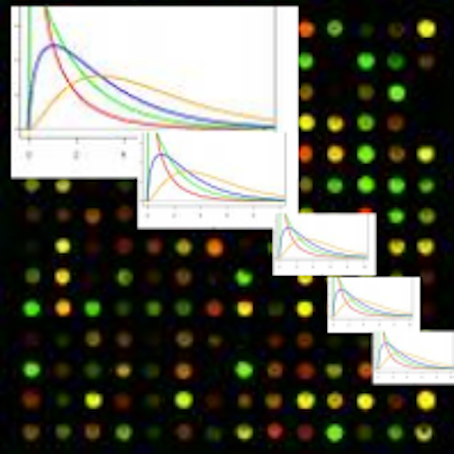
iHDSel: Detection of genomic patterns of selection
Program Installation
You can download the last version of iHDSel from the download menu.
The zip file includes the manual of the program jointly with the executables for Windows, Ubuntu and M3Pro MacBook Pro, and the source code with a Makefile for compilation for linux/MAC users.
From the sources folder, the user can compile and install all source codes needed to run iHDSel just by typing "make" from the console.
Program Overview
iHDSel is the newest version of the old HaCDivSel program. The iHDSel algorithm is based on the connection of the Price equation with information theory (Frank 2017)
and uses the Jeffreys divergence (also known as population stability index) to compare the distribution of haplotype allelic classes between two populations.
The new statistic is called JHAC and has the advantage of asymptotically approximating a chi-square distribution, which avoids the need for resampling and increases the calculation speed by several orders of magnitude.
iHDSel is a computer program designed to find signals of natural selection in the genome of populations separated in space or time. It combines haplotypic pattern information with population differentiation information and can be a useful tool for exploring selection patterns in the genomes when approximate knowledge of haplotype phase is available. The new version still includes the EOS method, which is a useful outlier test when SNPs are independent.
This software forms part of the Marine Science Programme (ThinkInAzul)
supported by the Ministerio de Ciencia e Innovación and Xunta de Galicia with funding from the European Union NextGenerationEU (PRTR-C17.I1) and European Maritime and Fisheries Fund

Downloads
Citing iHDSel
- Carvajal-Rodríguez,A. 2024. iHDSel software: The Price equation and the population stability index to detect genomic patterns compatible with selective sweeps. An example with SARS-CoV-2. Biology Methods and Protocols. Doi: 10.1093/biomethods/bpae089
- Carvajal-Rodríguez,A. 2017. HacDivSel: Two new methods (haplotype-based and outlier-based) for the detection of divergent selection in pairs of populations. PLOS ONE 12(4): e0175944. Doi: 10.1371/journal.pone.0175944
License
This program is free software; you can redistribute it and/or modify it under the terms of the GNU General Public License as published by the Free Software Foundation; either version 2 of the License, or (at your option) any later version. This program is distributed in the hope that it will be useful, but WITHOUT ANY WARRANTY; without even the implied warranty of MERCHANTABILITY or FITNESS FOR A PARTICULAR PURPOSE. See the
GNU General Public License for more details. You should have received a copy of the GNU General Public License along with this program; if not, write to the Free Software Foundation, Inc., 59 Temple Place - Suite 330, Boston, MA 02111-1307, USA. See the file "gpl.html" under the "license" directory.
Contact
For any questions about the options of the program or the source code please email me
iHDSel requires a sequence file. By default it accepts the ms format, and VCF, Fasta, FastPhase, and phased HapMap are also accepted as haplotype input files.
In addition, Genepop, BayeScan and PLINK (MAP/PED) formats are accepted as files for outlier analysis (more information is available in the program manual).
See the section Window size in the manual.
See the section User-defined candidates for selective loci in the manual.
The method is rooted on the information interpretation of the Price equation (detailed in this article).
Extreme Outlier Set test (detailed in this article).
The program has versions to run on Windows, Linux and MacOsX. See the corresponding section in the manual.
The program generates three files. For example, if the ouput tag in the argument list was followed by X (-output X) then the program generates one file called X_MAF_0.01_Blocks_FSTs.txt with the result of the EOS analysis and other two called X_MAF_0.01_Blocks.tsv and X_MAF_0.01_Blocks_SIG.tsv with the result of the JHAC analysis.
For more details see the corresponding section in the manual.
A. Carvajal-Rodríguez - Departamento de Bioquímica Genética e Inmunología - Universidad de Vigo.
( Last update: May 2024)